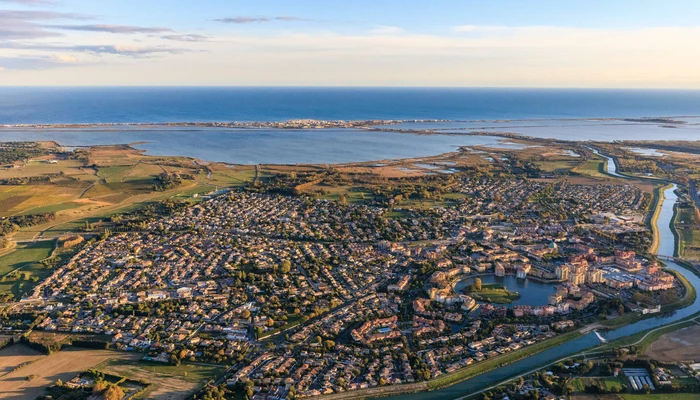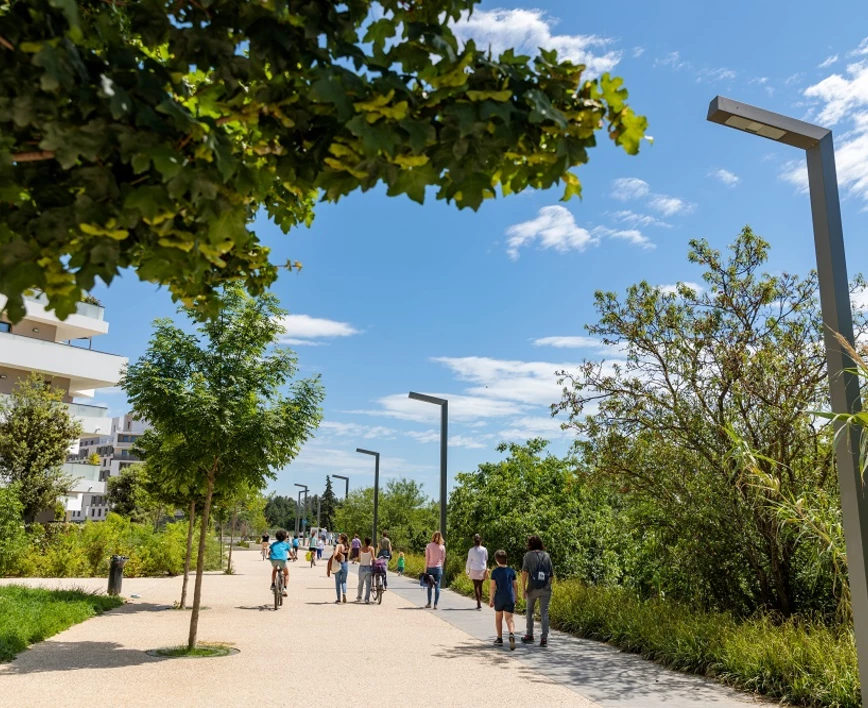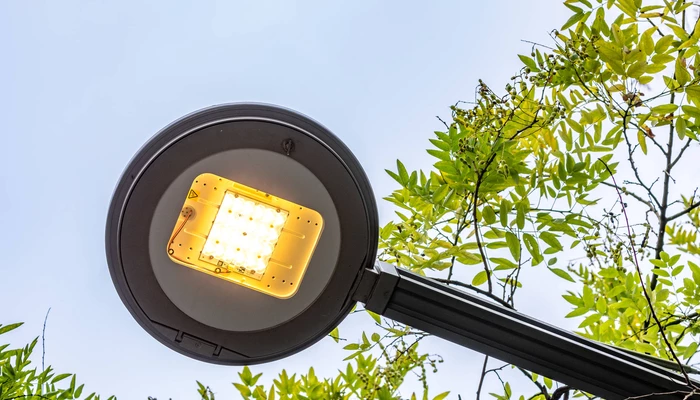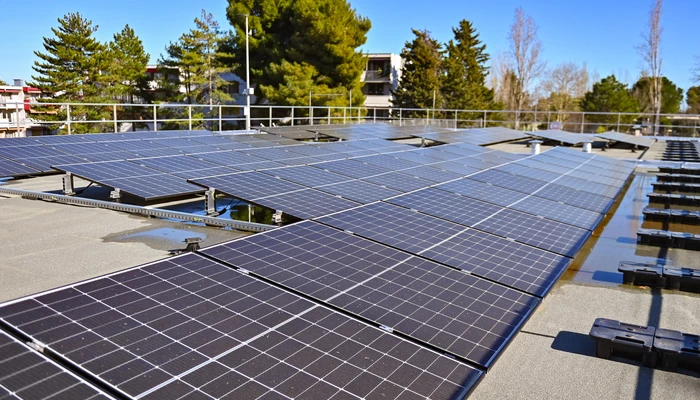Street lighting
Since 2015, responsibility for public lighting, previously exercised by the communes, has been transferred to the Metropole of Montpellier, which has embarked on a policy of:
- mutualization of resources developed in the communes;
- control of energy expenditure and maintenance costs;
- compliance of electrical networks;
- maintenance of public safety.
Since 2019, within the Pôle Proximité et Espaces Publics, the Métropole's public lighting department concentrates all the human resources and resources needed to manage and modernize the 31 communes' public lighting assets.
Artificial lighting at night is today at the heart of a number of reflections revealed by the following elements:
Economic context
- Unprecedented increase in the cost of energy and consequently of all manufactured products dependent on the price of energy. In 2023, the price of electricity used for public lighting rose by 75%.
- Tension on strategic raw materials and in particular the materials needed for new technologies.
Environmental context
- Constant and accelerating increase in light pollution worldwide.
- Confirmed global warming linked to greenhouse gas emissions.
- Unprecedented erosion of biodiversity.
Societal context
- Increase in nocturnal uses, both professional and leisure, notably marked by the end of the Covid pandemic and its restrictions on activities.
- Massive increase in active mobility (walking, scooters, bicycles, etc.).
- Phased introduction of free public transport in the Montpellier Metropole.
- Feeling of insecurity associated with night-time mobility.
- Increased sensitivity to the impacts of light on people's health.
Urban context
- High attractiveness of urban centers and outlying shopping areas.
- A rich architectural heritage enhanced by sometimes obsolete installations.
- Densification of urbanization, Zero Net Artificialization objective.
- Deployment of new public transport lines (Tram, BHNS).
In order to reconcile these different issues and respond to a strong political order to promote more sustainable public lighting, Montpellier Méditerranée Métropole has committed to the realization of its Lighting Plan.
What is a Lighting Plan?
The Montpellier Metropole Lighting Plan is a voluntary document providing a global and strategic vision of all artificial night lighting in the territory, thus enabling the adoption of a sustainable management approach.
It is also a management tool and a reference document for new development and renovation projects, which will have to follow the orientations, objectives and actions defined in the Plan.
After establishing a diagnosis of the territory and the existing lighting stock, the Lighting Plan identifies the main challenges of the territory's public lighting policy and management of luminous aesthetics. These are broken down into objectives and concrete actions to be implemented:
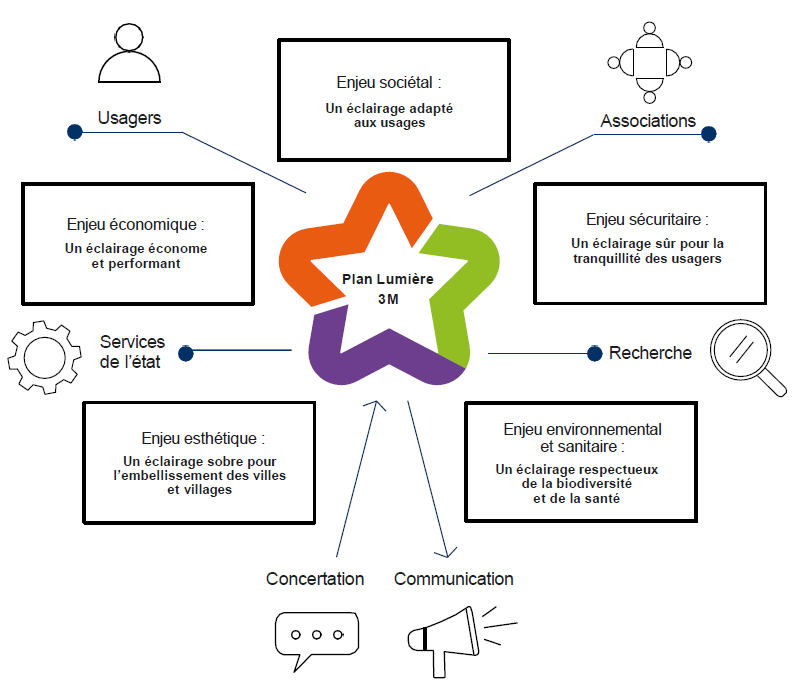
Lighting Plan objectives
- Affirm the Metropole's policy in terms of artificial lighting at night and the reduction of light pollution.
- Set common and specific rules for the installation and operation of the lighting network throughout the Metropole.
- Orient and assist public and private decision-making in favor of reasoned lighting that is adapted to users' needs.
- Raise awareness, inform and support all players in the fight against light pollution.
- Meet the objectives and commitments of the Plan Climat Air Energie Territorial solidaire de la Métropole and thus contribute to the community's energy transition.
Over a 5-year period, the Lighting Plan will be assessed each year by the Lighting Steering Committee, made up of 4 metropolitan elected representatives, who will be able to measure the progress of its action plan. It is intended to evolve in line with the political, societal, technological or regulatory changes that will be required in the coming years.
In practice
